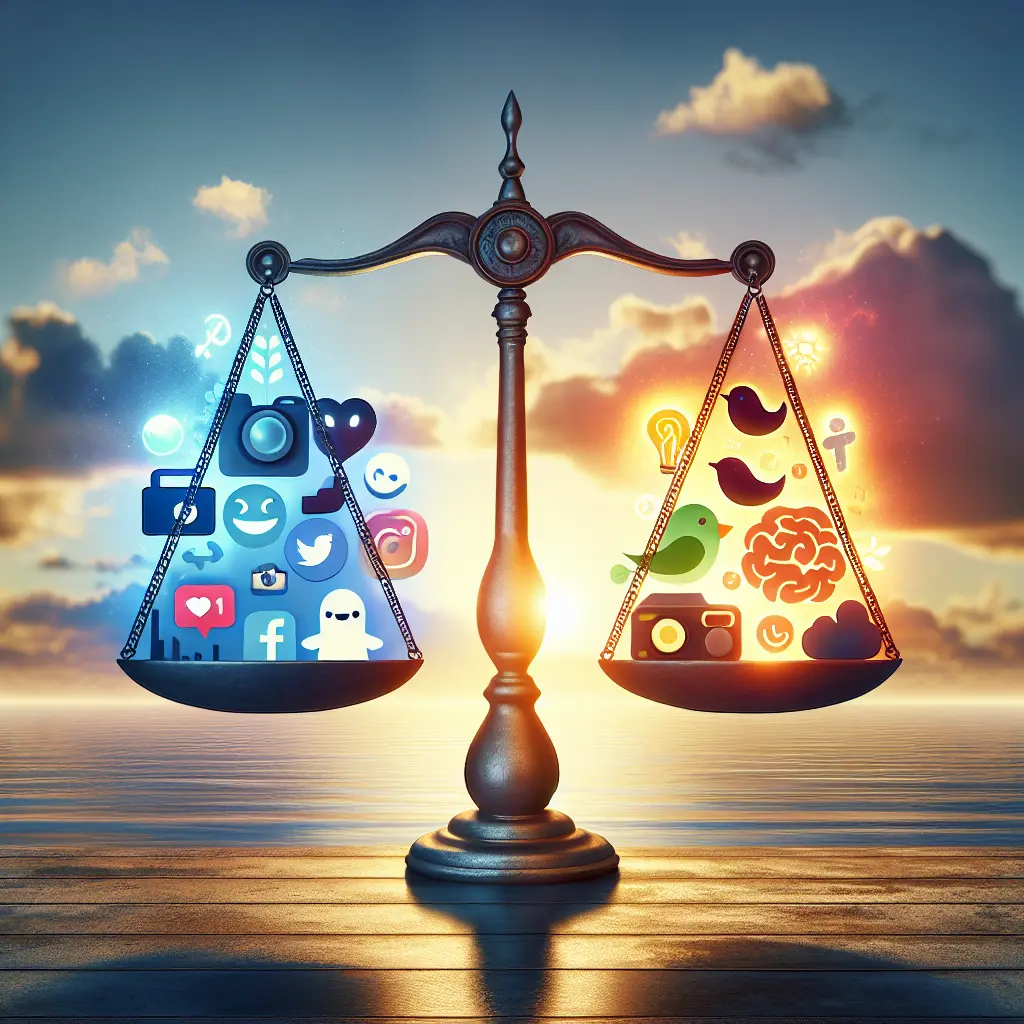
Navigating the Digital Landscape for Mental Wellness
In an era where digital connectivity is omnipresent, the interplay between mental health and social media has emerged as a pivotal topic of discussion. As these platforms increasingly become integral to our lives, it is crucial to understand their impact on mental health. The challenge lies in striking a balance between social media use and fostering a healthy relationship with these digital spaces. Mindful social media use is not merely a trend but a necessity for maintaining mental wellness in the digital age.
Understanding the Impact of Social Media on Mental Health
Social media's influence on our psyche can be profound, often manifesting in anxiety and depression. This underscores the importance of cultivating healthy habits and raising mental health awareness. A digital detox can be beneficial, allowing individuals to step back and reassess their online engagement. However, it is not just about reducing screen time but effectively managing it to promote mental well-being.
Recognizing Social Media Stress
Recognizing the signs of social media stress is a crucial step in navigating this digital age. Practicing social media self-care can mitigate negative effects, such as anxiety from constant notifications or depression from online comparisons. From managing these anxieties to finding a balance that alleviates depressive feelings, there are numerous mental health tips for social media users to explore.
Cultivating Healthy Social Media Habits
Creating healthy social media habits is essential for reducing stress. A digital detox, where individuals consciously take breaks from online activities, can help reassess engagement levels. Experts emphasize that it’s not merely about reducing screen time but managing it effectively (source).
Strategies for Mindful Interaction
Mindful social media use involves being intentional about when and how you interact online. This intentionality can significantly reduce negative effects on mental health. Here are some strategies:
- Set Specific Times for Social Media Use: Allocate certain times of the day for checking social media to avoid constant scrolling.
- Use Technology Wisely: Leverage apps and tools that monitor and limit screen time, helping to create a balanced digital environment.
- Prioritize In-Person Interactions: Focus on face-to-face conversations and real-world activities that can boost mental health more effectively than digital interactions.
These strategies are particularly relevant given the importance of downtime for mental health (source).
Addressing Social Media Anxiety and Depression
Social media anxiety and depression are increasingly common issues that require attention. The competitive nature of platforms often leads to self-comparison and feelings of inadequacy. However, lessons from events like the Paris Olympics demonstrate that competition doesn't need to be cruel. Similarly, social media environments can be cultivated to foster positivity rather than comparison.
Practicing Social Media Self-Care
By recognizing signs of social media stress and practicing self-care, individuals can mitigate these challenges. Self-care might include unfollowing accounts that trigger negative feelings or engaging in activities outside of social media that bring joy and fulfillment.
Real-World Examples of Social Media Balance
Recent initiatives provide valuable insights into achieving social media balance. The South-East Governors' youth empowerment campaigns emphasize real-world interactions and skill-building, offering alternatives to excessive online engagement (source). These programs highlight the importance of providing youth with opportunities beyond digital spaces, promoting overall well-being.
Furthermore, a primary school has received praise for its focus on improving outcomes by integrating technology education with real-world skills, illustrating a balanced approach to digital literacy.
Embracing Social Media Balance as an Ongoing Journey
Achieving social media balance is not a one-time goal but an ongoing journey. It requires continuous reflection and adaptation to personal needs and circumstances. As we delve deeper into strategies for enhancing our relationship with social media while safeguarding our mental health, consider the following:
- Regularly Assess Your Online Habits: Periodically evaluate how social media affects your mood and productivity.
- Stay Informed About Digital Trends: Keeping up with current trends can help you make informed decisions about your online presence.
- Engage in Open Discussions: Talking openly about mental health and social media challenges can foster a supportive community environment.
By embracing this journey with an open mind, individuals can create a healthier digital life. As Prince Harry and Meghan Markle have shown through their engagements, blending online presence with meaningful real-world interactions can lead to positive outcomes.
Conclusion: Navigating the Digital Age Mindfully
In the quest for mental wellness, achieving a balanced relationship with social media is crucial. The pervasive nature of these platforms can often lead to anxiety and depression, making it essential to cultivate healthy online habits. Mindful social media use involves setting boundaries, incorporating digital detoxes, and prioritizing real-world interactions to reduce stress and enhance well-being.
Managing screen time effectively is another vital strategy. By allocating specific times for online activities and leveraging tools to monitor usage, individuals can prevent digital overload. Moreover, embracing in-person interactions fosters genuine connections that digital communication cannot replicate.
Addressing social media anxiety requires recognizing the triggers of self-comparison and negativity. Practicing self-care by curating one's online environment can significantly mitigate these challenges. Real-world initiatives, such as youth empowerment campaigns, underscore the importance of providing alternative, enriching experiences beyond digital engagement.
Achieving social media balance is a continuous journey, demanding regular self-assessment and adaptation. Staying informed about digital trends and engaging in open discussions about mental health can foster a supportive community, encouraging a healthier digital life.
As we navigate this ongoing journey, remember that small changes in your digital habits can have profound effects on your mental well-being. Reflect on how social media impacts your life, and take proactive steps to create a more positive experience. Consider sharing your insights and experiences in the comments section below to contribute to a broader conversation on this vital topic.
Let's continue this exploration together. By embracing mindful practices and informed strategies, we can harness the benefits of social media while safeguarding our mental health. Stay connected and inspired, and let's make the digital world a healthier place for everyone.
Warm regards,
Eliza Sterling